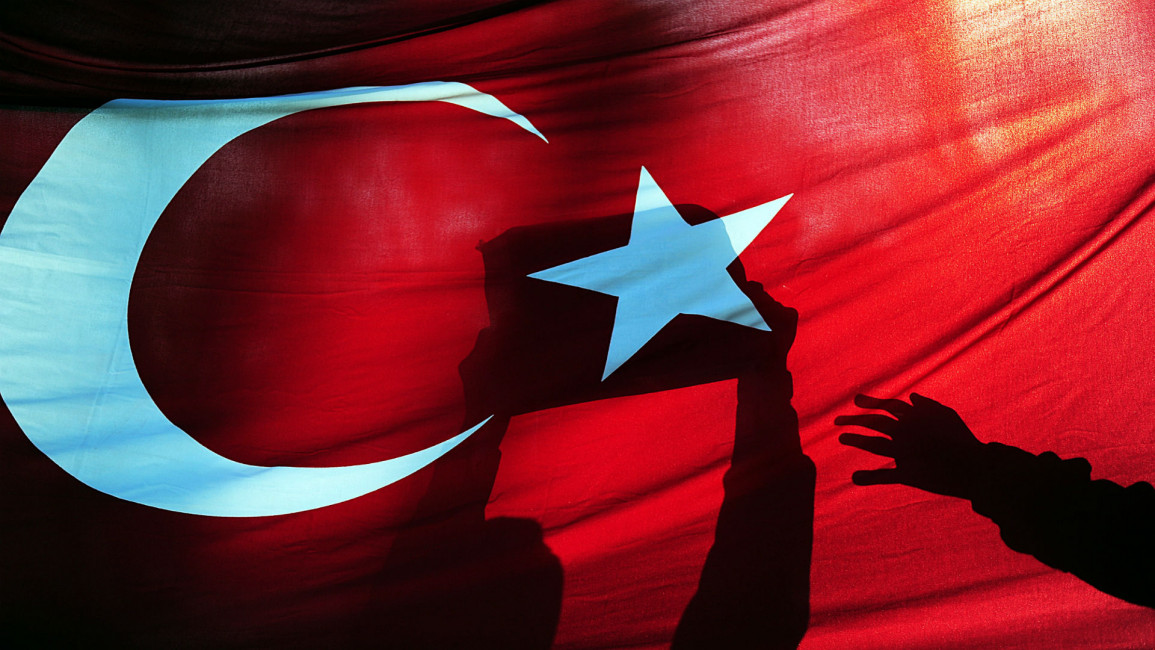Freedom 'declines in Turkey', as Trump blamed for emboldening authoritarianism worldwide
Global freedom has declined for the 12th consecutive year, according to a Freedom House report published on Tuesday.
The rights watchdog, which tracks progress and decline of freedom, blamed changing US policy under the year-old administration of Donald Trump for the falling benchmark.
"A long list of troubling developments around the world contributed to the global decline in 2017, but perhaps most striking was the accelerating withdrawal of the United States from its historical commitment to promoting and supporting democracy," Freedom House president Michael Abramowitz said in a statement, adding that the American leader's "admiration" for "some of the world's most loathsome strongmen and dictators" contributed to emboldening authoritarian regimes.
Ambramowitz added states such as Turkey, which "seemed like promising success stories" are "sliding into authoritarian rule".
Scoring 32 out of 100 on the organisation's freedom index, Turkey declined to "Not Free" category from "Partly Free" for the first time since the register began 18 years ago.
Its drop in world rankings was put down to its crackdown on opposition politicians, journalists and rights activists and purges of state employees following the attempted coup in July 2016, which has "left citizens hesitant to express their views on sensitive topics", the report said.
"In addition to its dire consequences for detained Turkish citizens, shuttered media outlets, and seized businesses, the chaotic purge has become intertwined with an offensive against the Kurdish minority, which in turn has fueled Turkey's diplomatic and military interventions in neighbouring Syria and Iraq."
Elsewhere in the Middle East, authoritarian rulers in Saudi Arabia, the United Arab Emirates, and Egypt "asserted their interests in reckless ways" that exacerbated conflicts in Libya and Yemen, as well as the initiation of the now seven-month long Saudi-led blockade on Qatar.
Despite nascent social and economic changes in ultra-conservative Saudi Arabia, spearheaded by Crown Prince Mohammed bin Salman, any progress towards a more open society were marred by "arbitrary arrests and aggressive moves" against potential rivals, and no inclination to depart from an absolute monarchy political system.
Syria, plunged into seven years of civil war after President Bashar al-Assad's regime responded with military force to peaceful protests demanding democratic reforms, was the worst performing country in the world for democracy and rights, with an aggregate score of -1.
Saudi Arabia was also among the world's worst, with a score of 10 out of 100.
How Freedom House scored Middle East countries on political rights and civil liberties:
0 worst, 100 best
Syria -1
Libya 9
Saudi Arabia 10
Bahrain 12
Gaza 12
Yemen 13
UAE 17
Iran 17
Oman 23
Qatar 24
Egypt 26
West Bank 28
Iraq 31
Turkey 32
Algeria 35
Kuwait 36
Jordan 37
Morocco 39
Lebanon 43
Tunisia 70



